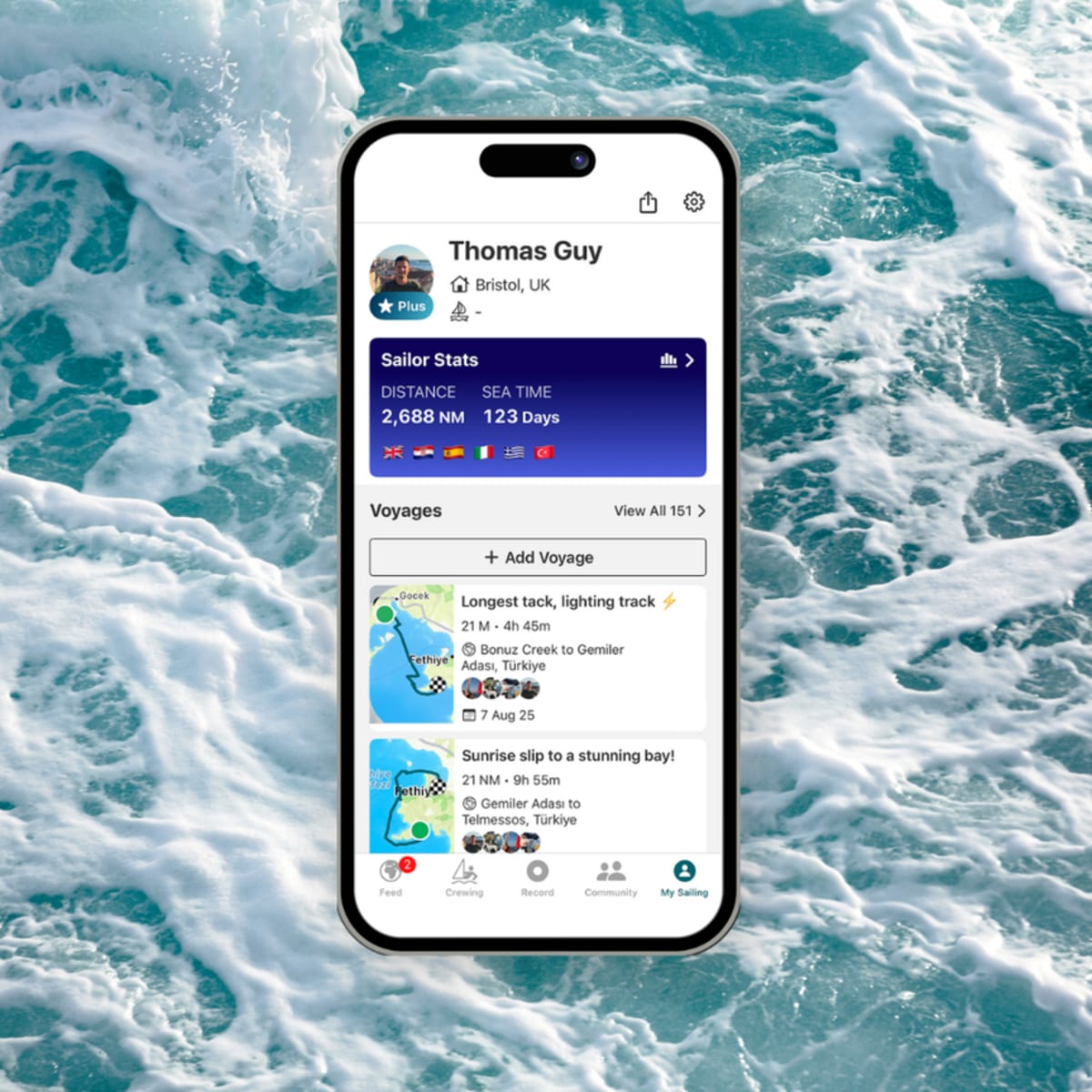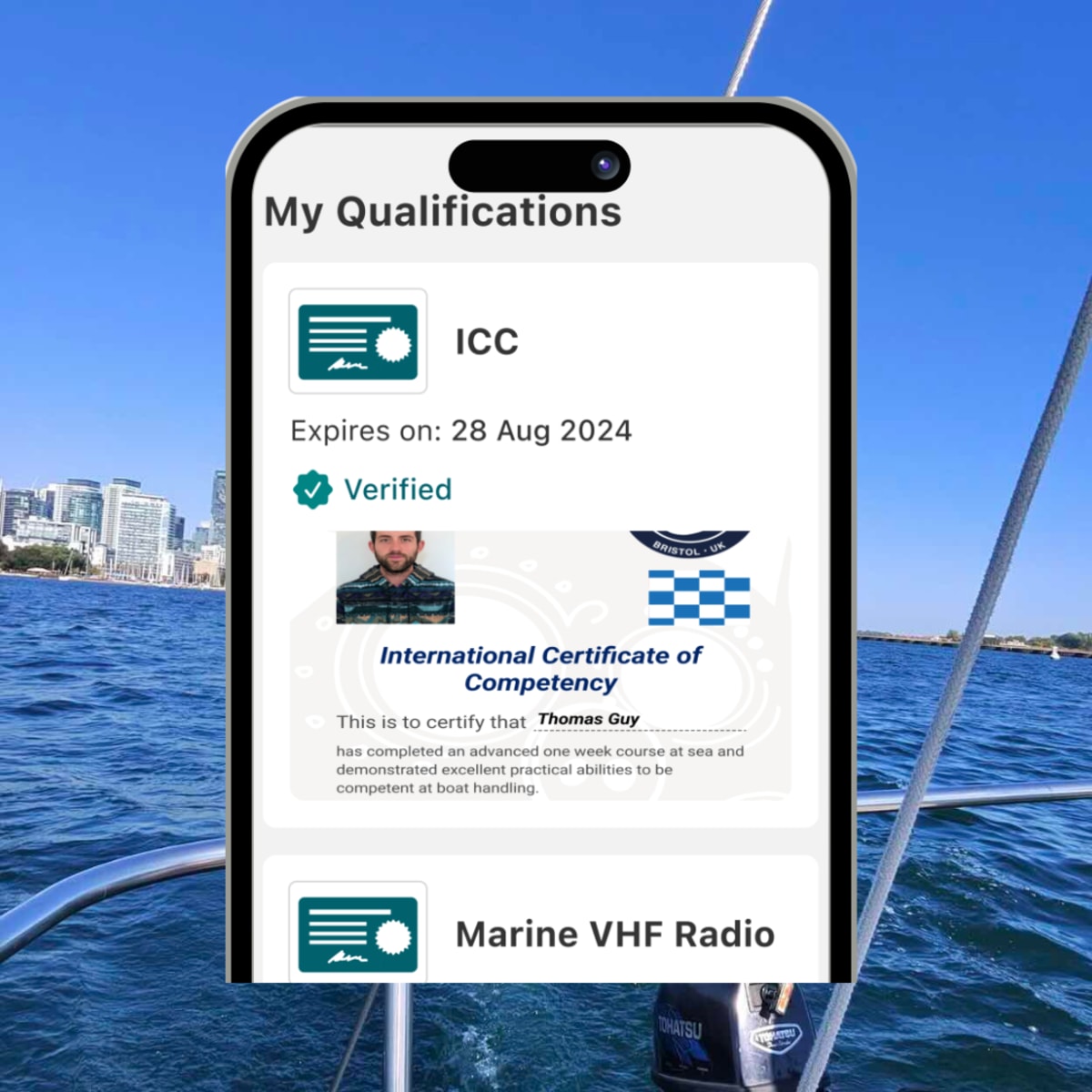Whether you're chartering a yacht in the Mediterranean, applying for a crew job, or preparing for ocean crossings, sailing qualifications are your official proof of skills. But with so many options — RYA, ASA, IYT, NauticEd, ICC, SLC — it’s easy to get lost.
This guide explains the most popular sailing certifications, who they’re for, how to get them, and which ones are accepted globally.
TL;DR: Key Points on Sailing Qualifications
- RYA is the most globally recognized, especially in Europe
- NauticEd offers flexible online theory plus hands-on certification
- IYT is preferred by professional crew and captains
- ICC (International Certificate of Competence) is often required in the Med
- SLC (Sailing License and Credentials) is US-based alternative to ICC
- ASA is an option for US-based recreational sailors
Why Sailing Qualifications Matter
Without proper qualifications, you may not be able to:
- Charter a boat in Europe or the Caribbean
- Get marine insurance
- Work legally as crew or skipper
- Prove experience to authorities or charter companies
Charter companies and officials want to see training, logged experience, and verified competency. Even private owners and insurers ask for it.
Types of Sailing Certifications
RYA (Royal Yachting Association)
- Based in: UK
- Best for: Recreational and professional sailors worldwide
- Courses include: Competent Crew, Day Skipper, Coastal Skipper, Yachtmaster (Coastal, Offshore, Ocean)
- Recognition: Widely accepted in Europe and globally
- ICC: RYA can issue the ICC after completing Day Skipper Practical
- Endorsements: Required for commercial work (e.g., First Aid, PPR, SRC Radio)
NauticEd
- Based in: USA
- Best for: Online learners seeking flexible, verified qualifications
- Courses include: Theory online + practical assessments via partner schools
- Recognition: SLC meets international charter requirements (ICC equivalent)
- Unique: US Coast Guard and NASBLA recognition
IYT (International Yacht Training)
- Based in: Canada with bases worldwide.
- Best for: Crew or captains aiming for international or superyacht work
- Courses include: Recreational and professional certifications
- Recognition: Strong with charter companies and professional marine industry
ASA (American Sailing Association)
- Based in: USA
- Best for: Recreational sailors in the US
- Courses include: ASA 101–106 and beyond
- Recognition: Strong in North America, some international charter acceptance
- Focus: Practical instruction + shore-based classes
What's the ICC and Do You Need It?
ICC (International Certificate of Competence) is often required when chartering in the Mediterranean and parts of Europe. It proves you meet UN Resolution 40 standards.
You can get the ICC by:
- Completing an RYA Day Skipper Practical (RYA can issue the ICC)
- Passing a standalone ICC assessment (available via RYA and others)
If you’re from the US and need an ICC equivalent:
- Get the SLC (Sailing License and Credentials) from NauticEd. It is accepted by many European charter companies.
How to Choose the Right Sailing Qualification
Casual Recreational Sailor
- Best choice: NauticEd for US, RYA for UK/EU
- Goal: Local sailing or basic charters
International Charterer
- Best choice: RYA with ICC, or NauticEd with SLC
- Goal: Bareboat charter in Med, Caribbean, etc.
Aspiring Professional Crew or Skipper
- Best choice: IYT or RYA Yachtmaster pathway
- Goal: Paid crew or captain roles on yachts or charter boats
Experienced Sailor with No Paperwork
- Best choice: RYA Fast Track to Yachtmaster or NauticEd’s SLC track
- Goal: Validate years of experience and sail internationally
How to Log Your Experience
Sailing experience matters just as much as certificates. You’ll need to prove:
- Number of days at sea
- Miles sailed
- Night sailing
- Role on board (Skipper, Crew)
Use SailTies to log and verify your trips. It helps build a digital sailing resume you can share with charter companies, schools, and insurers.

Why You Should Store Your Qualifications in the SailTies App
Here are five reasons to ditch the piles of paper and upload your sailing qualifications to SailTies:
- Keeps everything in one place – No more hunting for certificates. All your qualifications are at your fingertips, ready to go when you are.
- Keeps your precious certificates safe – No more last-minute nightmares when you realize you left your ICC on the last boat or your document bag gets stolen. Upload to our cloud and they’re safe forever.
- Verified qualifications – With IYT and NauticEd we import your verified qualifications automatically. With other providers we check that your SailTies qualification match what you have uploaded. To ensure your qualifications are either verified or checked and can therefore be trusted.
- Easy to share – Share your SailTies profile and qualifications with anyone who needs to see them — in one tap.
- Ready for the next step – Easily keep track of your milestones in SailTies as you progress through your certificates. We also surface qualifying passages for you.

Frequently Asked Questions (FAQs)
What is the most recognized sailing qualification?
RYA qualifications, especially Yachtmaster Offshore, are the most globally respected and widely accepted.
Do I need a certificate to charter a boat?
Usually, yes. Especially in Europe. You’ll need a Day Skipper level certificate and possibly an ICC or SLC.
Can I get certified online?
Yes, theory can often be done online through NauticEd, ASA, or RYA providers. Practical training must still be done on the water.
What’s the difference between RYA, ASA, and IYT?
- RYA: International and professional-level training
- ASA: For US-based recreational sailors
- IYT: Geared toward superyacht and professional crew pathways
What is SLC in sailing?
The SLC (Sailing License and Credentials) is a US-based alternative to the ICC. It’s accepted by many charter operators worldwide.
Final Tip: Keep Your Records Updated
Even if you’ve finished your qualifications, keep logging your experience. Charter companies want to see recent activity.
For me personally, I first completed my RYA Competent Crew course to see what sailing was all about. Logging every mile with SailTies to keep a record of my experience.
I then set about getting some experience via Facebook Groups and much more easily with SailTies Crew Match. I sailed on different boats with different people until I had built up the confidence to do my RYA Day Skipper which I stored on SailTies.
I then chartered my first boat with friends in the Ionian, Greece and I have never stopped since.
I love looking back on my adventures with my SailTies log, rich with crew, photos, videos and all of my miles logged.
Use SailTies to maintain and share your sailing qualifications and resume. It’s secure, verifiable, and easy to update.

